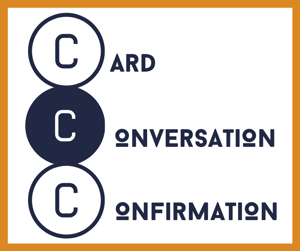As an organizational transformation coach, my primary job is often to help people find what they’ve lost. It is typical to hear from executives and tenured employees alike that they used to be more aligned, focused, responsive to customers and the market, etc. But after I listen, understand, and empathize, I’ll usually ask ‘where did you lose it?’. As you might imagine, the typical response is a blank stare, and it isn’t surprising.
What do you typically do when you’ve lost something?
Most rational people will stop what they are doing, think back to the last time they had it, and then attempt to retrace their steps. This is a fantastic move when you’ve misplaced your wallet or car keys, but it’s not exactly what you do when you lose your collective way as a company…or is it?
In this three-part article, we’ll explore a powerful technique I’ve developed over years of coaching people undertaking the path of organizational transformation.
In part one, we’ll explore how to set the right conditions in which leaders can reflect and understand the true problem. In part two, our goal will be to explore how ownership and accountability need to reflect the gravity of the true problem. Otherwise, learning and growth will metastasize in unhealthy and unhelpful ways. And lastly, in part three we’ll learn how to roll true reflection into true action to recapture purpose.
At the end of each section, we’ll have a few key techniques that will help you use this approach on your own. You’ll see - it works!
Part / Step One – ‘Stop’ and Reflect
If you want to disconnect someone from the comfortable continuity of their thoughts, ask them a ‘why’ question in a way that reflects a deeper, simpler truth. What companies and their leaders are saying when they say, ‘we need to find this new way’, is that their way of thinking, biases, and mental models have precluded organically finding this new way. What is usually meant by ‘new way’ is that the old way wasn’t working.
If you are a leader or influencer within a company, have you ever considered why this ‘new way’ has been excluded?
Every choice, for one thing, is a choice against something else, for by its very nature choice is limited but deterministic. And if we aren’t careful, we can often cede the power of change in our own choices and preclude the type of change we desire.
Let me give you an example.
I had a client who had to undergo a transformative organizational change and senior leadership was frustrated with the timing. They were always trying to force work through an overloaded organizational structure and were frustrated by the slowness with which their strategies were realized.
When we had a chance to discuss the challenge face-to-face, I asked, ‘When did your organization lose its speed.’ To which the two top executives exclaimed, ‘I have no idea, I don’t think we ever had it!’ So next I asked, ‘Do you think that you can retrace your steps?’ To which one of the executives adamantly replied, ‘Reliving the past isn’t the point. We need to fix today.’ So, I continued, ‘How did you make the choices that got you to today?’
What most quickly realized was their constant focus or drive for speed excluded a very present reality. If they weren’t going fast, after all these years of chasing after speed, it meant their organization wasn’t designed for this kind of responsiveness.
The leaders in question, to their credit, quickly had to come to grips with the fact that their mode of thinking was in a rut. It excluded the ‘new way’ they’d been searching for over the years, and even had made some allergic to it!
This is the first step in realizing you’ve lost your way, thereby inviting a brand new way that disrupts your current mode of thought and opens up the possibility for a truly transformative change in your choices.
Key Techniques and Reflections
- It’s essential to ask questions that eventually lead the listener(s) to the context of their choices, so they can reflect on where they left a path of successful thinking.
- You want the listener(s) to realize their thinking up to today excluded them from organically solving their own problem, and that they want to get in touch with what was once more natural for them.
- Also, it is very important to let the listener(s) to come to their own conclusions. There is nothing people accept more readily than their own ideas.
- Just because it's obvious to you doesn’t mean it is obvious to them. You don’t live contextually in their organizational mental model, so be gracious!



